Judges reject Lockerbie bomber's appeal against conviction
- Published
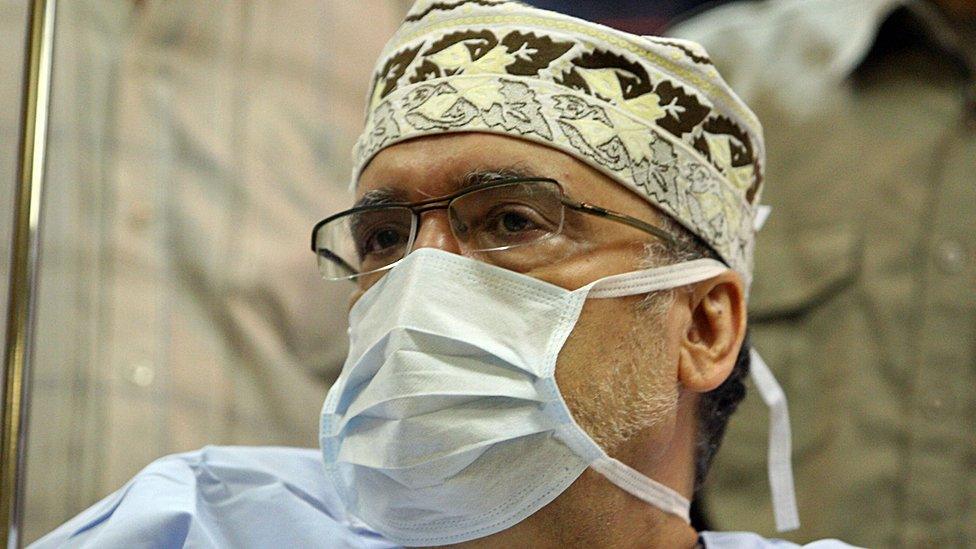
Abdelbaset al-Megrahi died in 2012 but his family pursued the posthumous appeal
Scottish judges have rejected a third appeal on behalf of the Libyan man convicted of the Lockerbie bombing.
The family of Abdelbaset al-Megrahi, who died in 2012, argued that he was the victim of a miscarriage of justice.
But the Court of Criminal Appeal upheld the verdict of the original trial, which took place at special Scottish court in the Netherlands in 2001.
Megrahi is the only person to have been convicted over the bombing of Pan Am flight 103 in December 1988.
All 259 passengers and crew on board the flight were killed, along with 11 people in Lockerbie who died when the wreckage fell onto their homes.
Last month the US announced new charges against a Libyan man who is accused of making the bomb.
Abu Agila Mohammad Masud has been charged with terrorism-related crimes, and prosecutors say they will seek his extradition to stand trial in the US.
Megrahi was found guilty of playing a central role in the bombing in 2001 after the trial at Camp Zeist, and lost the first appeal against his conviction the following year.
He abandoned a second appeal shortly before he was released from prison in 2009 after being diagnosed with terminal cancer. He returned to Libya, where he died in 2012.
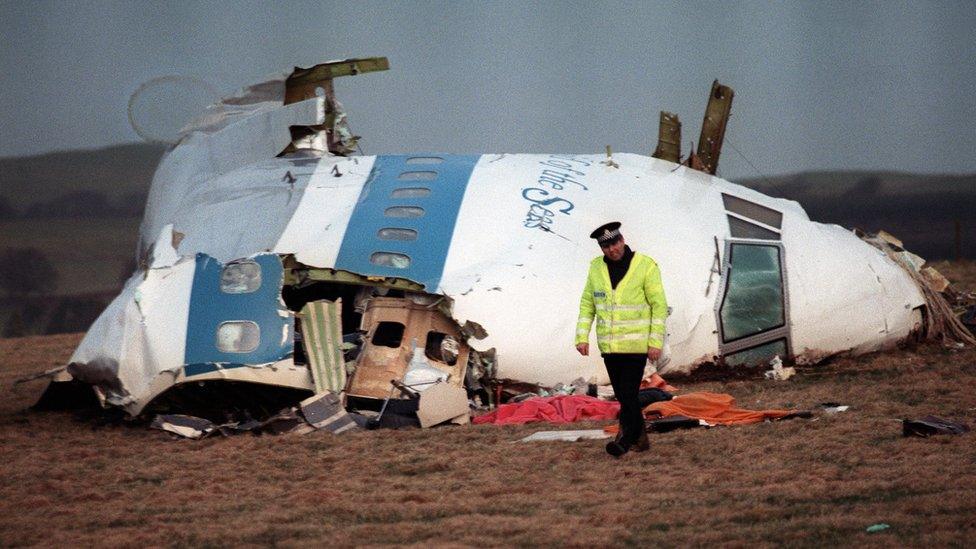
His family continued their efforts to ensure a further appeal against his conviction, and the Scottish Criminal Cases Review Commission referred his the case back to the courts last year.
A written judgment rejecting the appeal, external was delivered by Scotland's most senior judge, Lord Carloway, the Lord Justice General.
He said they had rejected the argument that the trial court had come to a verdict that no reasonable court could have reached.
"On the evidence at trial, a reasonable jury, properly directed, would have been entitled to return a guilty verdict," the judgement says.
The five judges also rejected the second grounds of appeal, that the Crown failed to disclose material which would have created a real prospect of a different verdict.
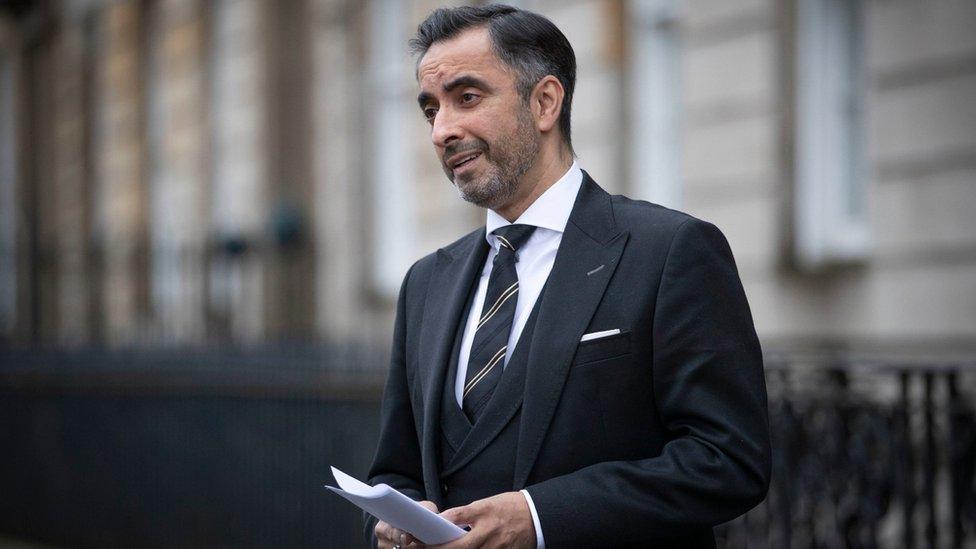
Lawyer Aamer Anwar said Megrahi's family were determined to fight for justice
In a statement issued by lawyer Aamer Anwar, the family said they were "heartbroken" by the decision and would now lodge an appeal with the UK Supreme Court.
He said Megrahi's son, Ali Al-Megrahi, maintained his father's innocence and was determined to clear his name.
"All the Megrahi family want for Scotland is peace and justice, but as Ali stated today their journey is not over.
"Libya has suffered enough, as has the family for the crime of Lockerbie. They remain determined to fight for justice," said Mr Anwar.
Dr Jim Swire, who lost his daughter Flora in the bombing, said he had believed the Scottish system would deliver "truth and justice" - but did not think it had done so.

Kara Weipz said she was pleased with the decision to refuse the appeal
"I very much regret that we have to see whether we can go elsewhere to look for those outcomes," he said.
However Kara Weipz, whose brother Richard Monetti was killed in the atrocity, said she was "quite pleased" with the decision.
"We have always had confidence in the system that it would turn out this way," she said.
"I don't know how many more decisions can be made that say the conviction at trial was the correct decision.
"I don't know how many more judges can confirm what was decided at Camp Zeist."
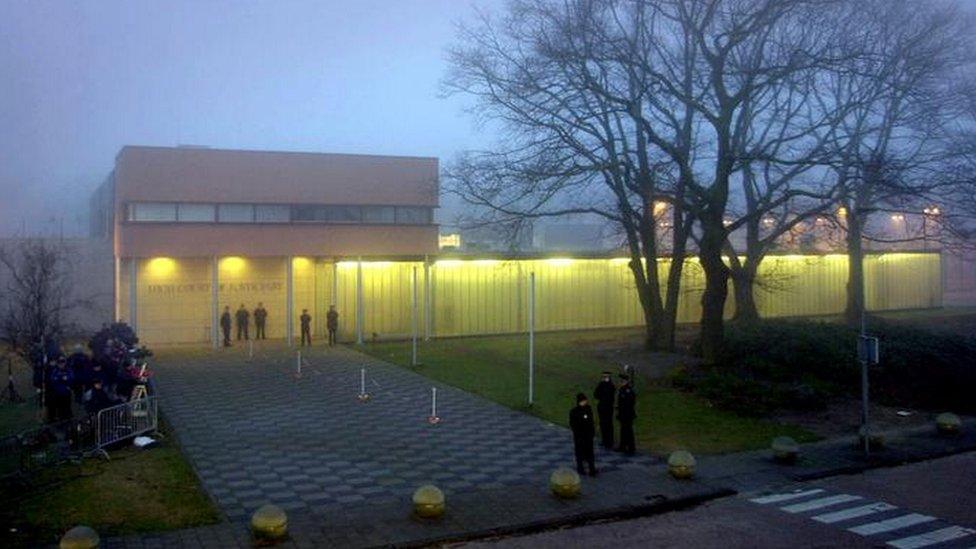
Megrahi's trial took place at Camp Zeist in the Netherlands
Justice Secretary Humza Yousaf said the Scottish government had always been clear that the courts were the only "appropriate forum" to determine Megrahi's guilt or innocence.
He said it did not comment or intervene in any criminal case and added that the investigation into the bombing remained ongoing.
Police Scotland's Chief Constable Iain Livingstone said his thoughts remained with the families of the victims.
He said the force would continue to work on its investigation along with the Crown Office, American law enforcement and other international partners.
That commitment was reiterated by Scotland's top prosecutor, Lord Advocate James Wolffe QC.
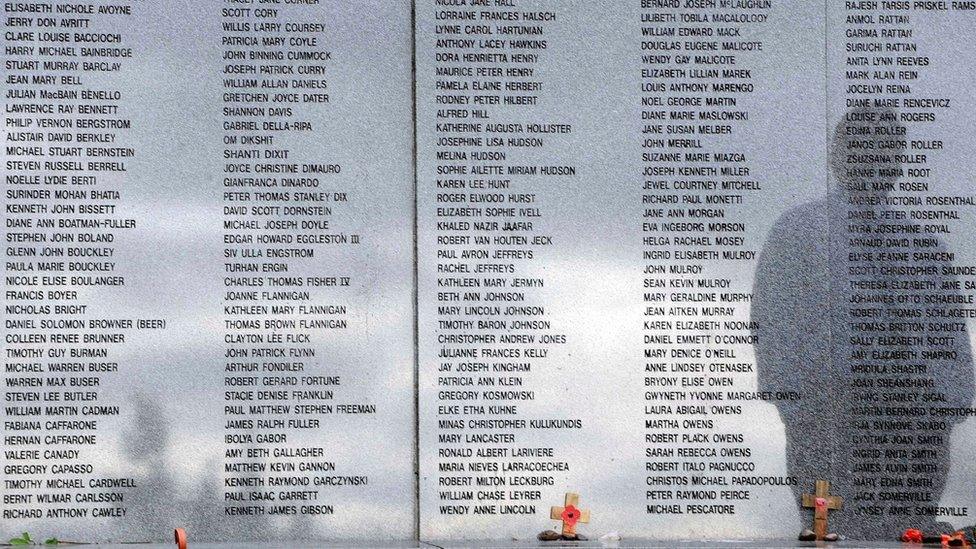
A total of 270 people died in the Lockerbie bombing
The appeal against Megrahi's conviction was heard by five judges at the High Court in Edinburgh in November.
Advocate depute Ronald Clancy, representing the Crown, said the original trial judges had been fully entitled to infer that Megrahi was involved in the bombing.
He said a number of factors suggested his involvement, including his use of a false passport.
Claire Mitchell QC, representing the Megrahi family, argued that evidence in relation to his identification was of "poor quality".
She said the court had read into a mass of conflicting evidence a conclusion which was not justified.

How did we get here?
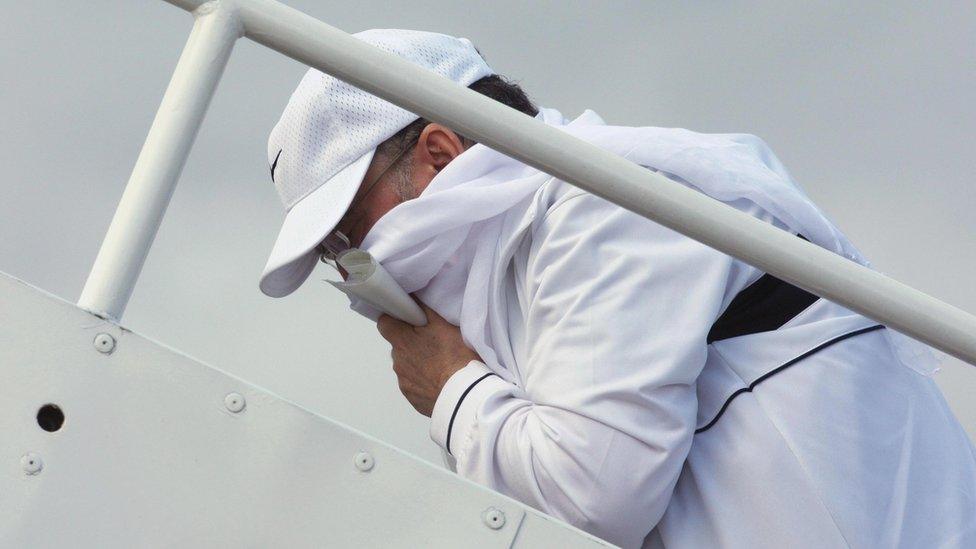
Megrahi was released from prison in 2009 on compassionate grounds
US and British investigators indicted Megrahi in 1991 but he was not handed over by the Libyans until April 1999.
May 2000 - A special trial under Scots law starts on neutral ground at Camp Zeist in the Netherlands.
31 January 2001 - Former Libyan intelligence officer Megrahi is found guilty of mass murder and jailed for life with a minimum term of 27 years.
March 2002 - Megrahi loses an appeal against his conviction.
June 2007 - The Scottish Criminal Cases Review Commission (SCCRC) recommends that Megrahi is granted a second appeal against his conviction.
18 August 2009 - Megrahi's move to drop his second appeal is accepted by judges at the High Court in Edinburgh.
20 August 2009 - Megrahi, who has terminal prostate cancer, is released from prison on compassionate grounds, external.
May 2012 - Megrahi dies at his home in Tripoli, aged 60.
July 2017 - Megrahi's family launch a new bid to appeal against his conviction.
March 2020 - The Scottish Criminal Case Review Commission says Megrahi's conviction can be taken to a fresh appeal.
August 2020 - The posthumous appeal is given permission to proceed.
January 2021 - Judges uphold the verdict of the trial and reject the appeal.